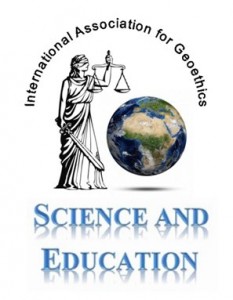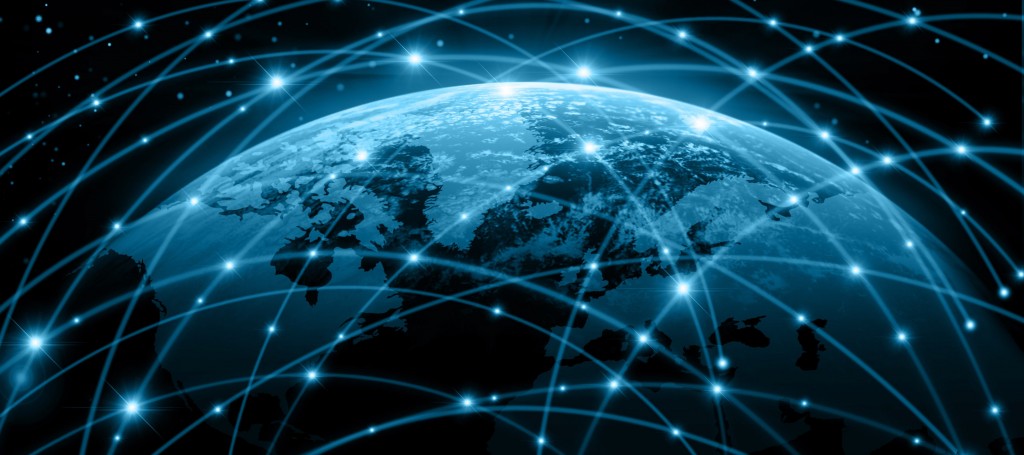
The International Union of Geodesy and Geophysics (IUGG) and the Abdus Salam International Centre for Theoretical Physics organized an extremely interesting and significant Conference on Future of Earth-Space Science and Education. The Conference was held in the prestigious Abdus Salam International Centre for Theoretical Physics (ICTP). The main different subjects were:
- Future Earth and sustainability
- The world without disasters
- Climate change and future generations
- Earth, space, and planets
- Future geoscience and education in the developing world
The Director of the Conference was Prof. Dr. A. Ismail-Zadeh ,Karlsruhe Institute of Technology, Karlsruhe, Germany and the CTP Local Organizer was Dr. Abdelkrim Aoudia
This was the main framework of the Declaration on Future Earth & Space Science and Education
________________________________________
Declaration on Future Earth & Space Science and Education
The following declaration aims to highlight the importance of Earth and space science education in future scientific progress and to reinforce the link between the scientific community, national governments and the public to contribute to sustainable development of society through scientific awareness and actions related to challenging problems of society. The declaration was adopted on 6 December 2015 by the participants of the International Conference “Future Earth and Space Science and Education” co-sponsored by the Abdus Salam International Centre for Theoretical Physics (ICTP) and the International Union of Geodesy and Geophysics (IUGG) and held in ICTP, Trieste, Italy on 2-6 November 2015.
The responsibility of Earth and space scientists is to help humanity. Seismologists and volcanologists attempt to save lives by evacuating before eruptions or by mitigating the effects of earthquakes. Geodesists quantify the shape of the Earth so that cities can be built and airplanes flown. Geologists help to restore the complicated history of our planet, and space physicists provide a window into the nearly unknown world, in which our satellites are sent and spacecraft launched. Hydrologists, oceanographers and atmospheric scientists may have the heaviest burden of all as they help guide the planet through climate change and natural hazards. In order to push knowledge forward, intellectual and financial resources should be invested in basic science and science education at a level commensurate with the applied fields. At the same time the need for a scientifically literate populace is increasingly recognized as critical in many countries, as they face the consequences of increasing population pressures, limited resources and environmental degradation (c.f., ICSU ad-hoc panel report on science education). Basic science literacy, coupled with scientific “ways of knowing” – namely drawing conclusions based on observation, experiment and analysis – provides citizens with the tools needed for rational debate and sound decision-making based on scientific knowledge. There is a consensus that in many places around the world, science education is facing serious challenges. Those seeking to improve science education face numerous, and sometimes coupled, problems. In many places, the lack of resources – both educational and financial – is linked with a dearth of adequately trained teachers and the growing popularity of non-scientifically-based belief systems. It is clear that developing countries face greater challenges in science education than economically developed countries due to lack of teaching materials including books, computing and communications technologies, community-based science centers, laboratory facilities and equipment, as well as a shortage of skilled teachers. Given this global scenario, and the needs of society, there is an urgent need to improve the preparation of the scientists of tomorrow, not only through widespread access to quality instruction, facilities and research opportunities for all students, but also to improve the motivation and interest of students so that the best of them move toward scientific careers.
The participants of the ICTP-IUGG Conference “Future Earth and Space Science and Education” representing several international organizations (in alphabetic order)
– The Abdus Salam International Centre for Theoretical Physics, Earth System Physics Section (ICTP/ESP)
– International Astronomical Union (IAU);
– International Association for Geoethics (IAGETH);
– International Cartographic Association (ICA);
– International Council for Science, Regional Office for Africa (ICSU-ROA);
– International Geographical Union (IGU);
– International Union for Quaternary Science (INQUA);
– International Society for Photogrammetry and Remote Sensing (ISPRS);
– International Union of Geodesy and Geophysics (IUGG);
– International Union of Geological Sciences (IUGS);
– International Union of Radio Sciences (URSI)
– Integrated Research on Disaster Risks Programme (IRDR);
– World Climate Research Program (WCRP)
Acknowledging the long-standing and ongoing contributions of the International Council for Science (ICSU); the International Social Sciences Council (ISSC); the United Nations Educational, Scientific and Cultural Organization (UNESCO); other United Nations, intergovernmental, international and national organizations dealing with science education;
Recalling one of the Sustainable Development Goals is “to ensure inclusive and equitable quality education and to promote learning opportunity for all”
Considering the challenging problems of society (e.g. climate change, natural hazards and disaster risk, depletion of mineral and water resources) requires a transdisciplinary research approach and co-productive work of scientists with policymakers and end-users; and the responsibilities of scientists to help society to tackle challenging problems;
Realizing, that science education at all levels needs long-term planning, coordination and implementation;
Call for a strengthening of basic scientific research and science education especially in the developing world; namely,
1. promoting educational programs having a sound disciplinary base in the fundamentals needed for the physical sciences comprising mathematics, physics, chemistry, and biology. This is required for all mutli-disciplinary Earth and space sciences disciplines and in countries having both developed and emerging economies;
2. promoting comprehensive holistic inter- and trans-disciplinary approaches in Earth and space sciences and science education, which have to integrate knowledge from natural and social sciences, mathematics, engineering, and other relevant stakeholders;
3. cooperation between Earth and space scientists with policymakers and industry to improve science education at schools / universities and within life-learning education programs;
4. networking within education programs and between existing and new regional science educational centers, especially in Africa, Latin America and Caribbean, and Asia and Oceania;
5. promoting integrated and transdisciplinary curricula, particularly in the emerging and challenging scientific fields like disaster science and climate science, via a science team approach;
6. improving geoscience education infrastructure and increasing the number of university chairs in both multidisciplinary and transdisciplinary education;
7. promoting online geoscience education courses and hands-on science education workshops on challenging societal problems as well as science Olympiads and festivals; recognition of best science educators;
8. promoting dialogue between science educators on curricula and curriculum delivery development, and sharing of best practice;
9. citizen science education and involvement to raise awareness of the public to major societal and ethical problems.
________________________________________

